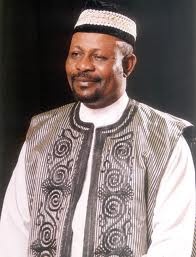Former president of the Musicians Union of Ghana (MUSIGA), Alhaji Sidiku Buari has urged the entire executives of the union to create more jobs for the musicians to enable them make ends meet.
He also urged the union executives to provide quality leadership that addresses the needs and aspirations of its members, the music industry and the country.
Speaking to BEATWAVES in an interview after a forum held at the union’s office to mark Obour’s one year in office, Alhaji Sidiku said Ghanaian musicians would realise the fruits of their labour if they were united and managed their resources well.
He therefore urged the executives of the union to be forthright and do what was right in protecting the rights of the musicians to enable them meet the challenges ahead. The former MUSIGA president appealed to the current president of the union, Bice Osei Kufour, aka Obour to invest in the musicians, saying there were many talented people in Ghana who could match any around the world.
He was of the view that since the foundation has already been laid by the past leaders of the union, the current executives should take advantage of that to create opportunities for its members. The former MUSIGA president, who served eight years in office, declared that there was the need for members of the union to put their differences aside and form a united front to fight for the pressing needs of the union.
Giving the historic background of the union, Alhaji Sidiku Buari said between 1989 and 1990, MUSIGA was deserted by musicians due to acrimony, division and mistrust among its members.
It was at that time operating from a very small office at Kawokudi, (old workers brigade building), which was not the best place to operate business. Later, he and his executives wrote to the government to donate one of its buildings to the union to use as offices. The government then made available to the union the former Passport Office building to be used as its offices.
BEATWAVES gathered that after the government had allocated them the Old Passport Office building, the next challenge was how to renovate it since the building was in a poor condition.
The former MUSIGA president stated that some of the musicians donated some of their songs for compilation to raise funds to renovate the building, but unfortunately the sales was not encouraging, adding that efforts to raise money proved futile.
Based on his determination to move the union forward, Sidiku Buari used his own money to renovate the building.
From 1999 when he took over the union as its president there were tremendous changes in the union. There was good infrastructure to operate from and “this gave us the confidence and motivation to do our best to move the union forward.”
Alhaji Sidiku Buari added, “Working for the progress of members, we revived our constitution to better protect our dear members. MUSIGA offices became so attractive to the extent that the beginning of the Ghana Music Awards meetings were held in our premises and made a lot of contribution to the Ghana Music Awards.”
Alhaji Sidiku Buari, a former vice president of the International Ferdration of Musicians (FIM) disclosed that he used his own resources to facilitate the union’s registration with FIM. He hinted that the union, during his time, also appealed to government to waive duty on musical instruments to enable musicians acquire their own sets of instruments, and succeeded in championing the passage of the Copyright Law C690 to protect the interest of all the copyright music and other stakeholders.
He stressed, “Today I am happy the government has recognised the contributions of the music industry and has allocated an amount of GH¢2 million to help develop the industry.”
He, however, urged the current president of the union, Obour to make sure Ghanaian musicians benefited from the resources available and also encouraged them to develop their musical career to meet the challenges ahead.
He was happy that a number of organisations are collaborating with MUSIGA to identify the potential of the music industry through an impact assessment study. The study, he believed, would be used to support the preparation of a medium term strategic framework that would guide the development of the industry.
Entertainment of Friday, 2 November 2012
Source: George Clifford Owusu-Daily Guide
Create Jobs For Musicians- Sidiku













